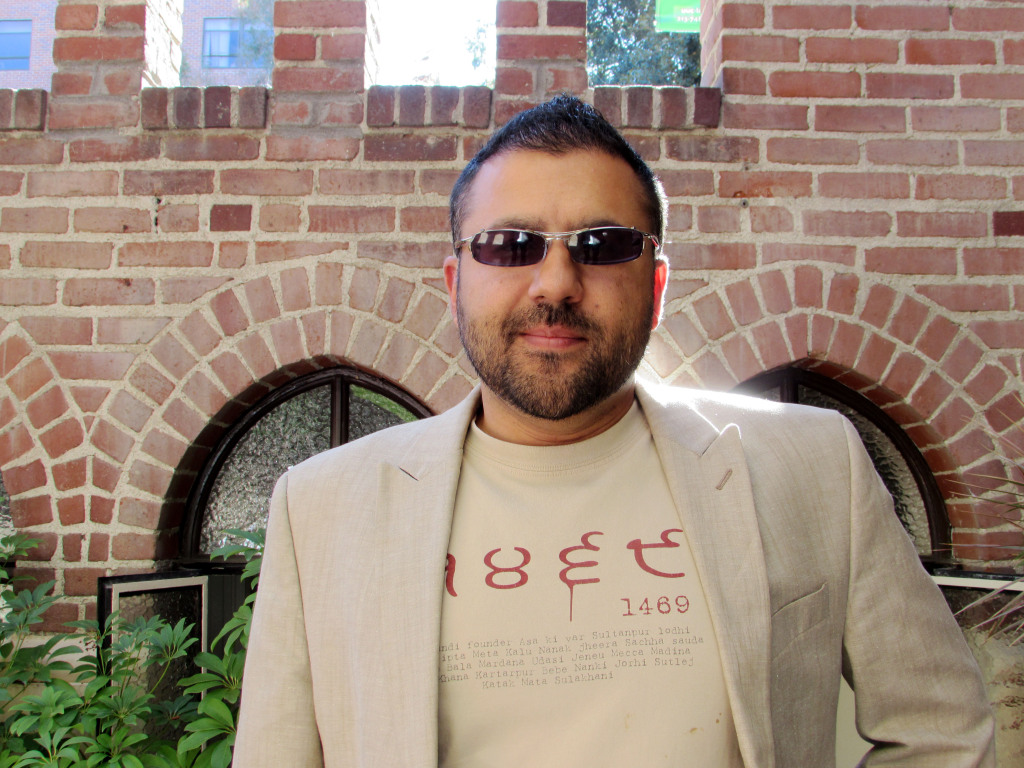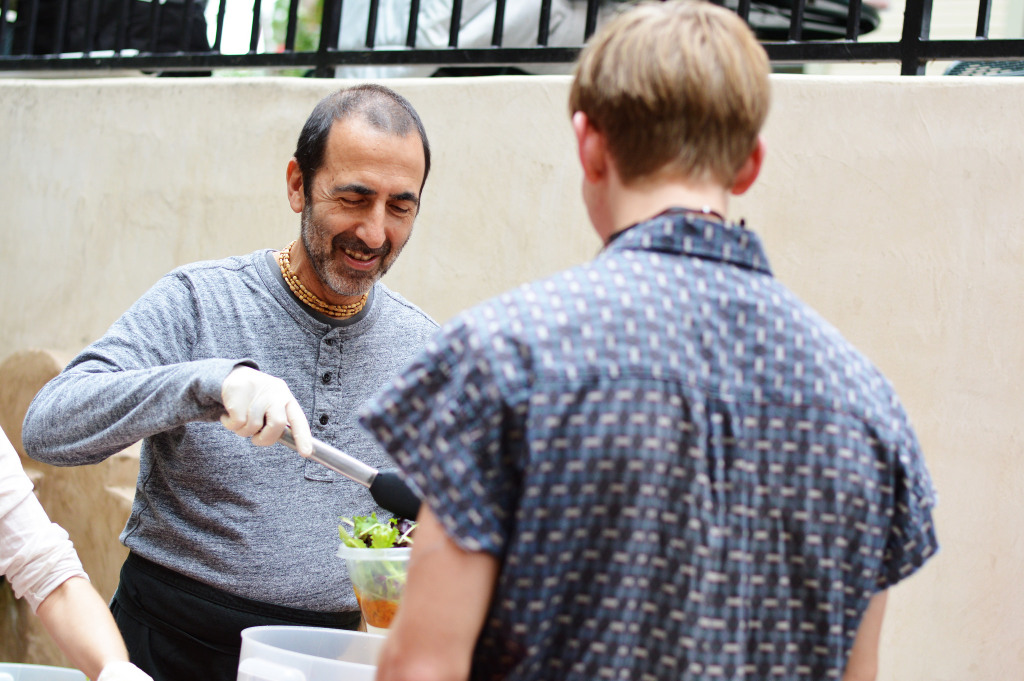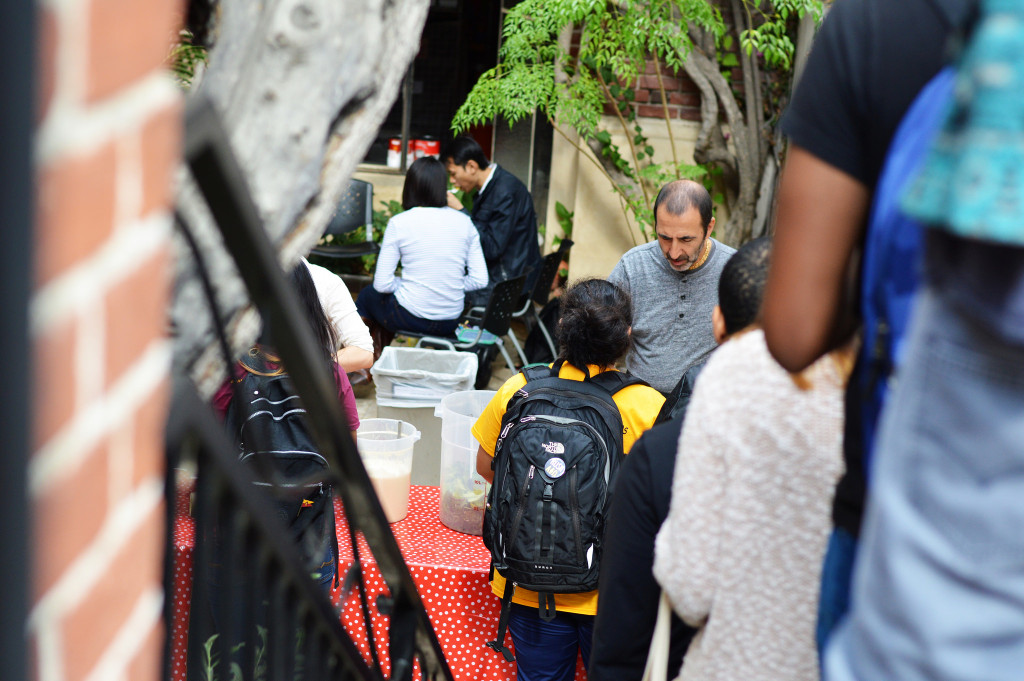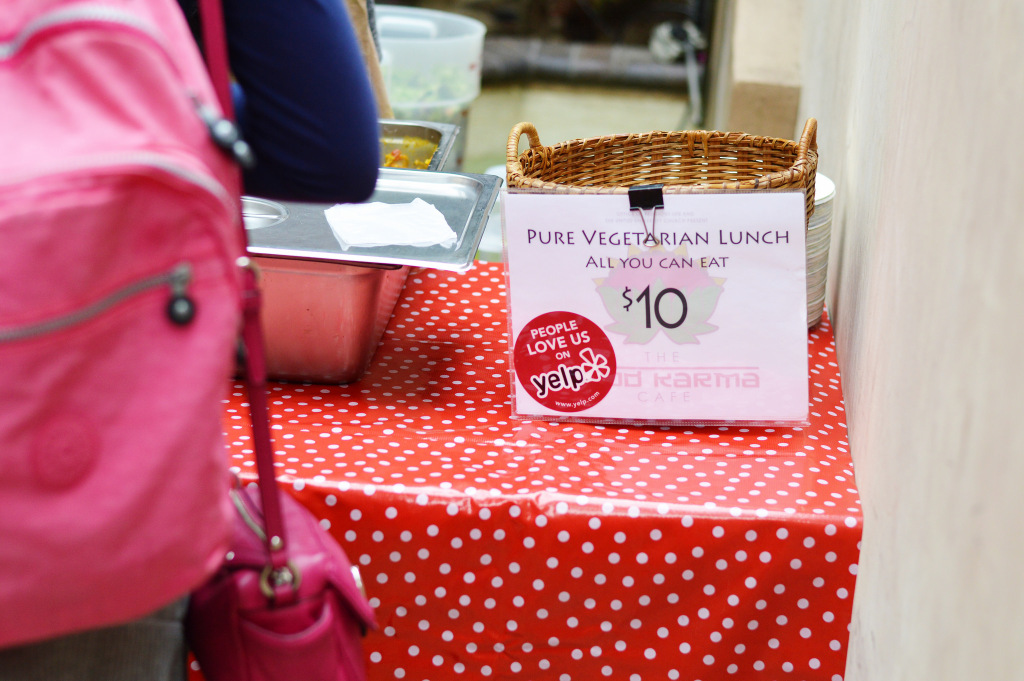By now, you’ve probably heard about The Good Karma Cafe, one of the many alternative campus eateries that we’d choose over lunchtime lines at Lemonade any day.
Every Tuesday and Wednesday from 12 to 2 PM, a vegetarian buffet is set up at the United University Church’s courtyard. All you can eat for only $10. Prepared according to the dietary guidelines of Vaishnava Hinduism, the meals aren’t only delicious and healthy, but also bring together students and faculty from all corners of the campus.
Spoon had a chance to take a moment with the mastermind behind The Good Karma Cafe: Dean of Religious Life Varun Soni. Soni provided a personal look into the Cafe’s mission, its successes and challenges to date and its goals for the future.
The Man behind the Mindfulness: Dean of Religious Life and Co-Chair of the Mindful USC Initiative, Varun Soni

Photo by Nga Do
Soni first explained that starting The Good Karma Cafe came largely out of his role as the Dean of Religious Life and meeting the dietary guidelines of different religions.
“The Good Karma Cafe caters to Hindu students and is a means of religious accommodation,” Soni said. At the start of the Cafe, there were also students petitioning for more vegetarian options on campus. The Good Karma Cafe caters to these groups of students on campus who may not have all the meal options they need.
When Soni visited the University of California at Santa Barbara in 2010, he met Sarvatma who was working as the cook in a similar program. He saw an opportunity to address these meal concerns that students had.
“I basically poached him and brought him over here to start The Good Karma Cafe,” he said with a chuckle.

Photo by Sarah Joh
The Good Karma Cafe reflects the goals of the landmark Mindfulness USC Initiative, a university-wide push for awareness of mental and physical health issues.
“The Cafe’s goals are similar to Mindful USC’s. All the food prepared here is vegan, freshly cooked and freshly prepared. The Cafe promotes the culture of mindful eating. Students start to pay attention to how they eat and what they eat.”
When students step into the cozy subterranean courtyard, they’re welcome to stay, eat and talk to other students and faculty.
“Like Mindful USC, the Cafe also promotes the nurturing of interpersonal relationships,” Soni said. “I think there’s definitely a sense of community here. The Cafe provides a retreat from the bustle of campus.”
Looking Back on 4 Years of Good Karma

Photo by Sarah Joh
The Good Karma Cafe has grown to serve about 5,000 meals a year. But counting the number of meals served isn’t the only way the staff at Good Karma Cafe measures its success.
“We’ve had a great positive feedback on Happy Cow and Yelp, though we don’t have a particular way to measure success. It’s mostly qualitative,” Soni said. “There have been students who have approached us and told us how the Good Karma Cafe is such an important part of USC. Students come and volunteer by doing food prep.”

Photo by Sarah Joh
Since 2010, the Good Karma Cafe has inspired change across campus. Dining halls now provide more vegetarian options and international cuisine. The Farmer’s Market on campus is also a fairly recent development.
“There’s definitely more of a sophistication of food culture we haven’t seen in the previous years,” Mr. Soni observed.
The Cafe still has one challenges: their regular customers tend to leave after four years. “We are constantly doing outreach. People usually find out about us by word of mouth,” Soni said. “Usually faculty are our most consistent constituents.”
In the future, the staff of Good Karma hope to expand this culture of mindful eating and community.

